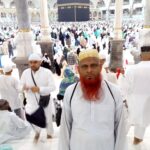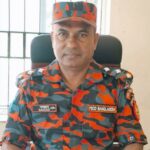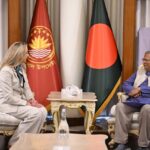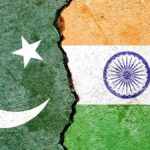Teesta Setalvad: Indian Parliament itself is being used to dismantle the Indian Constitution, brick by brick. Amendments and new laws are pushed through without the democratic niceties of discussion, debate and dialogue, and never mind the Parliamentary standing committees. At midnight on December 10, 2019, International Human Rights Day, Parliament passed the discriminatory Citizenship (Amendment) Act, 2019, with a majority of 311:80. Simultaneously, the home minister warned of the launch of the all-India NRC (National Register of Citizens).
In defiance of the basic constitutional tenets of equality and non-discrimination, Parliament made religion a marker. Singling out the “Islamic countries of Pakistan, Bangladesh and Afghanistan”, it fast-tracked processes for non-Muslims from there to enlist as Indian citizens. By December 12, the amendments were law.
Vibrant countrywide protests led by minority voices shocked a dispensation unused to dissent, but Covid-19 and the lockdown ended them. In Delhi, the protests and protesters were criminalised ― over 15 young leaders, almost all Muslim, remain incarcerated under an anti-terror law. The CAA 2019 and NRC-NPR (National Population Register) had to be put on hold. We have, however, been periodically reminded/warned by the dispensation that the process will begin again.
That time has come, two years before the 2024 general elections. The Ministry of Home Affairs in its 2021-22 Annual Report reveals that it has delegated powers under the Citizenship Act to grant citizenship under the controversial 2019 amendment. Though Rules have not yet been passed, the report states that in 2021, 1,414 citizenship certificates were granted under CAA provisions.
Does this mean that implementation of the discriminatory provisions of CAA 2019 has begun, using the MHA executive diktat and the formal provisions of an earlier 2009 amendment?
Yes. Collectors of 29 districts and Home Secretaries of nine states have been authorised to grant citizenship to foreigners belonging to Hindu, Sikh, Jain, Buddhist, and Christian or Parsi communities from Pakistan, Bangladesh and Afghanistan. The MHA report states, “The delegation will speed up the process of granting Indian citizenship to aforesaid category of migrants as the decision would be taken at local level.” Meanwhile, Parliament has been “assured” (Aug 2021) that there is no question of CAA 2019 being implemented until the Rules are finalised.
As we reported, on October 31, Anand and Mehsana in Gujarat are the latest two districts to be added to a list of 31 districts in Chhattisgarh, Rajasthan, Haryana and Punjab. Chhattisgarh, Punjab and Rajasthan are Opposition-ruled, but nothing has been heard from their governments. Politically, however, some of these governments have been opposing both CAA 2019 and the proposed implementation of the All India NPR and NRC.
The two other prongs of the citizenship trident — the NPR and NRC, are also about to be imposed and this three-pronged assault will result in a humanitarian crisis as large as the one in Assam. If 19 lakh persons were declared non-Indians in the final draft list of the NRC in Assam (August 31, 2019) ― of these, only 5.5 lakh are estimated to be from the politically stigmatised Muslim community ― another 2.2 lakh have been “declared foreigners” by the Assam Border Police and “doubtful voters” by local offices of the Election Commission. Of those affected, 60% are women and large sections are minors. A young, diverse team reaches 40 families a week, offers paralegal and legal aid to 150 a month and even releases detainees from the dreaded detention camps.
In a population of 3.3 crore in Assam, 1.3 crore have been impoverished and socially disbarred by being interminably denied citizenship. Assam has spent Rs 1,700 crore on the exercise, abandoning other welfare activities. Now, politically dissatisfied with the result (not enough Muslims declared non-citizens) they are pushing to run the entire draconian exercise again. This “documentary test” of citizenship can generate unspeakable social turmoil. Every disadvantaged social group will be on edge and at war with others, claiming the right to be declared Indian.
All India NRC-NPR
The government prepared a National Population Register (NPR) of ‘usual residents’ in 2010, under the UPA. The NPR was mandated through Rules to the Citizenship Act, 1955, in 2003. These Rules have not been extensively discussed in Parliament and until December 2019, were not even opposed by civil libertarians. The 2010 NPR included the collection of biometric data, which was incorporated into the Aadhar database. The 2003 Rules nowhere mention that the NPR must be conducted periodically but in 2015, fields such as Name, Gender, Date and Place of Birth, Place of Residence and Father’s and Mother’s Name were updated and Aadhaar, mobile and ration card numbers were collected. Now, the MHA states a need to update NPR soon to “incorporate the changes due to birth, death and migration”. This raised legitimate concerns that it was a backdoor exercise to collect documented data on individuals which may thereafter be used by the State to declare their citizenship ‘doubtful.’ The process was delayed by the pandemic but it will begin again.
The bureaucratic exclusion in Assam is being replicated on a national scale. What social turmoil, complications and internal feuds would that result in? Everyone, given the urge to protect themselves, would start thinking of “others” as the enemy. The poison of hatred that is already corroding us might destroy Indian society, fracture it beyond recognition.
This is being done because the regime seeks to use polarisation for retaining power, diverting attention from the real issues — such as the deplorable state of healthcare, education and employment — and facilitating the silent transfer of state resources to private players.
Hate as state policy, media design, political tool
My organisation uses a Pyramid of Hate to train peace-workers on the ground to intervene, monitor, dialogue, urge prosecution. For years, we have seen hate being used as a political tool. Judicial commission reports on bouts of communal violence have documented this, but we have not developed a social or political understanding around it and jurisprudence was poor until recently.
Hate as State project is about dehumanising and invisibilising large sections of Indians, particularly Indian Muslims. For centuries, we did it with our Dalits, even women, who were scripturally proscribed and denigrated.
Liberty and equality are harmonious rights not incongruous to each other.
So, if free speech (Article 19(1)) is crucial, this liberty cannot wrest away either the equality (Article 14) or dignity (Article 21) that provides for the non-discrimination of others.
FOE (Freedom of Expression) then is also subject to equality. Equality before the law ― does speech or writing affect the Equality, Fraternity and Dignity of any section? Since 2014, even the Supreme Court has developed some jurisprudence around hate speech, distinguishing it from free speech under Article 19(1) and making the attack on the Right to a Life of Dignity and Equality comparable.
Free speech is being criminalised today. Hate speech has not just been legitimised, but is a calculated state project with powerful men and women in constitutional posts using inciteful speech while silencing free speech.
Now, in this climate of hate-driven politics, if policies like the dangerous troika of CAA-NPR-NRC begin to be implemented, can we even begin to imagine the fallout?
Author: Teesta Setalvad is secretary of Citizens for Justice and Peace, which advocates for the rights of the Gujarat 2002 riot victims. She is the author of Foot Soldier of the Constitution:







